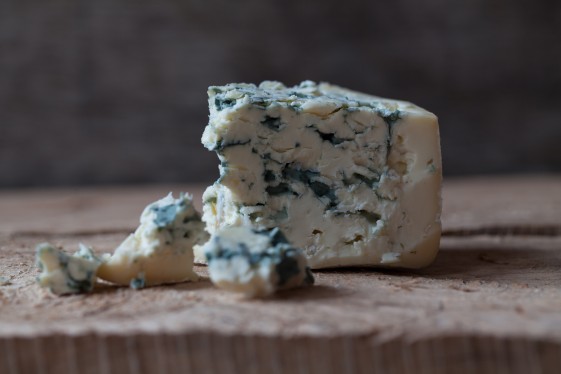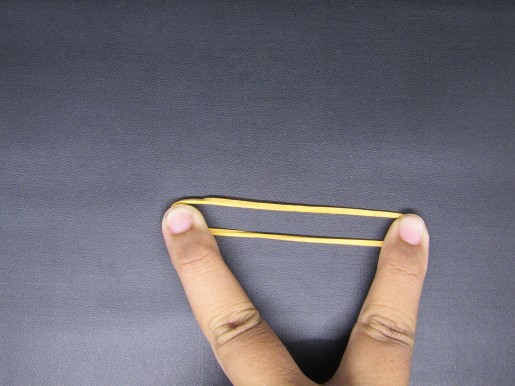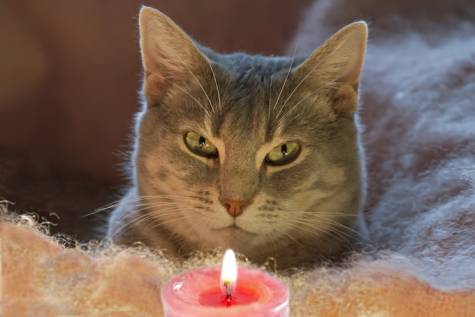Connect with a verified veterinarian in minutes. Licensed vets are available 24/7 to answer your questions. No need to worry about your furry family member.
Some pet parents love blue cheese. It’s common to include blue cheese on a charcuterie board along with other yummy foods. As you enjoy some blue cheese, your cat may come up and beg for her fair share. But what happens if a cat eats blue cheese? Is blue cheese safe for cats?
Has your cat eaten blue cheese? Are you worried the blue cheese will make your cat sick? If so, you’ve come to the right place. We understand it can be scary when something like this happens.
We’ve gathered information about blue cheese and whether it can make a cat sick. Let’s get started!
What is Blue Cheese?
Blue cheese is a term used to describe certain cheeses that are ripened with penicillium mold. The cheese usually has a salty taste with a sharp flavor, along with a strong smell. This kind of cheese is low in fat but high in sodium. And it’s a good source of phosphorus, calcium, and protein.
The cheese usually has a creamy color with blue veins of mold running through it. Each variety of blue cheese looks slightly different from the others.
The cheese was invented by accident during medieval times! Who knew! It appears that one guy left a loaf of bread along with cheese that was curing in a cave. When the guy went back, he found the bread and cheese were covered with mold. Yuck! But this is what led to today’s blue cheese!
There are several varieties of blue cheese, each slightly different from the others. Blue cheese is considered safe for humans, but what about cats? Can a cat eat blue cheese?
Blue Cheese & Cats
Unfortunately, cats should not eat blue cheese. While some sources said that the penicillin mold in the cheese could be toxic to cats, we were not able to verify that information. If your cat eats blue cheese and gets sick, we would recommend calling the vet right away.
In general, cheese is not very good for cats. The problem is that many cats are lactose intolerant. They can develop digestive system issues after eating cheese and become pretty sick.
Another issue is that some cats may be allergic to dairy. This is rare, but it can happen. A cat with a cheese allergy could develop an allergic reaction, including one that could be deadly.
Cheese is also high in sodium and calories, making it not good for cats to eat.

Review symptoms, medications & behavior to keep your pets healthy with a Vet Online in just minutes.
Ask a Vet Live NowSymptoms of Blue Cheese Ingestion
You may notice these symptoms if your cat has eaten blue cheese:
- Diarrhea
- Vomiting
- Lack of appetite
- Nausea
If you notice these symptoms in your cat, monitor her for 12 to 24 hours. If they persist, it’s best to call the vet.
Treatment of Blue Cheese Ingestion in Cats
The vet has medications that can stop diarrhea and vomiting. They may also give your fur baby medication that protects and calms her digestive tract.
If your feline companion has become dehydrated, the vet will give her an IV for fluids. This works to rehydrate your kitty and helps her feel better.
The prognosis is best for cats who receive prompt treatment after developing symptoms. If your cat seems to love blue cheese, it’s best to keep the cheese out of her reach. And avoid feeding her the cheese (even a small bite). You’ll both be happier for it!
Connect with a verified veterinarian in minutes. Licensed vets are available 24/7 to answer your questions. No need to worry about your furry family member.

Julie
Julie is a graduate of the University of North Carolina, Wilmington, where she studied Animal science. Though contrary to the opinion of her parents she was meant to study pharmacy, but she was in love with animals especially cats. Julie currently works in an animal research institute (NGO) in California and loves spending quality time with her little cat. She has the passion for making research about animals, how they survive, their way of life among others and publishes it. Julie is also happily married with two kids.
Review symptoms, medications & behavior to keep your pets healthy with a Vet Online in just minutes.
Ask a Vet Live Now




